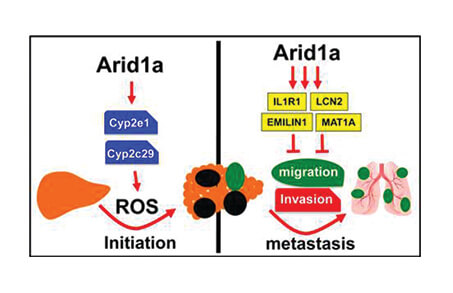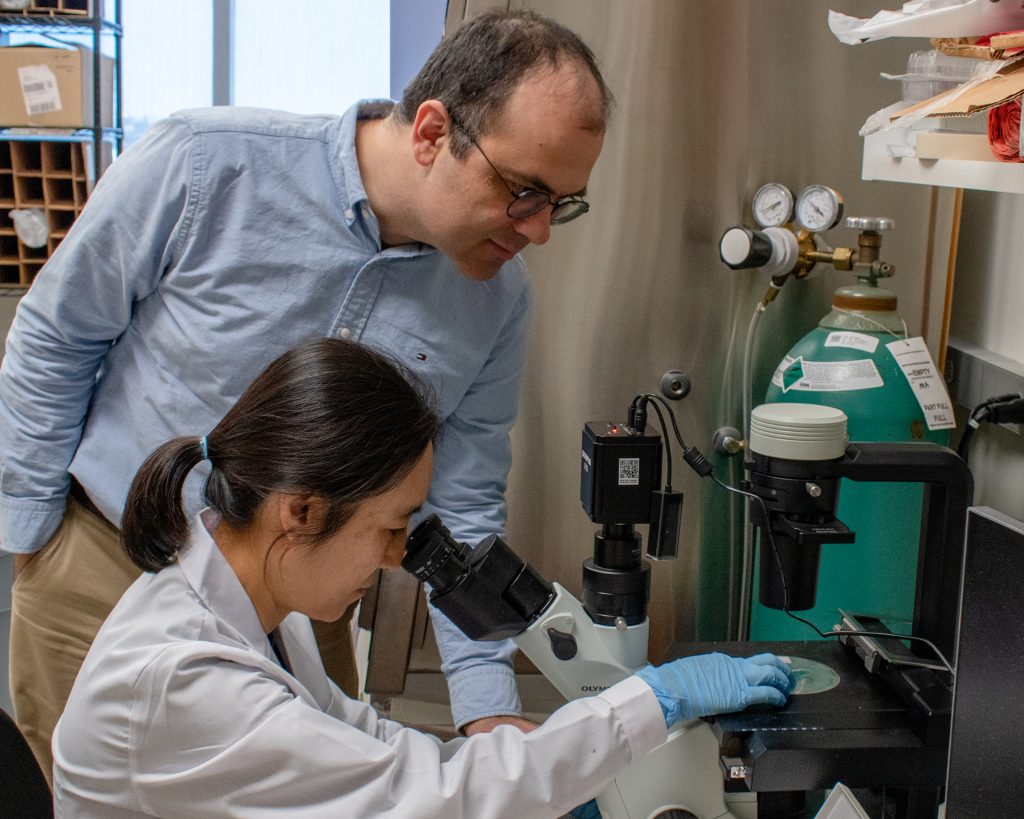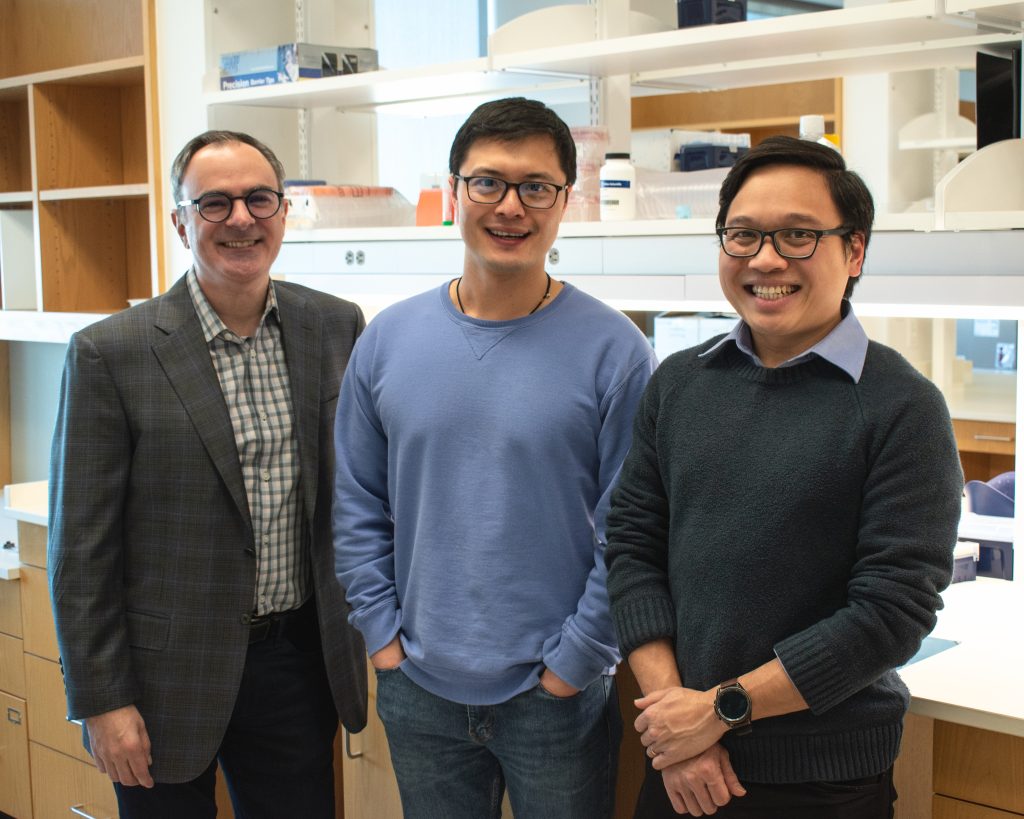 Scientists at the Children’s Research Institute (CRI) have discovered that ARID1A, a chromatin remodeling protein encoded by one of the most commonly mutated genes in cancer, has tumor-promoting effects in certain situations.
Scientists at the Children’s Research Institute (CRI) have discovered that ARID1A, a chromatin remodeling protein encoded by one of the most commonly mutated genes in cancer, has tumor-promoting effects in certain situations.
“We were surprised to discover this because ARID1A has historically been viewed exclusively as a tumor suppressor gene, but it was clear that in certain situations the gene can promote cancer growth as well,” said Dr. Hao Zhu, Assistant Professor at CRI with joint appointments in Internal Medicine and Pediatrics at UT Southwestern Medical Center and a CPRIT Scholar in Cancer Research.
Using both mouse and human samples, the Zhu lab found ARID1A’s oncogenic properties were seen in non-malignant tissues, while its tumor suppressive role occurred in cancerous cells.
Researchers from CRI are the first to report ARID1A has context and temporally-dependent tumor suppressive and oncogenic roles.
Findings from the study, published in Cancer Cell, help explain previously reported observations pointing to paradoxical roles for this gene and highlight that it is essential to consider context-specificity when attempting to therapeutically target epigenetic complexes in the future.



